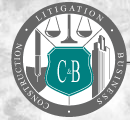IT'S THE LAW!
Cash a Check ~ Waive a Claim
By Theresa Crawford Tate Crawford & Bangs, West Covina, California
What do you do with a check marked "payment-in-full"? This is a quandary faced by all businesses including those in the construction industry. Do you return the check to the debtor? Do you strike the "payment-in-full" notation and cash the check? Unfortunately, there is no easy answer. Currently, there are two inconsistent statutes on the books in California, which have created a great amount of uncertainty for creditors and debtors relating to "payment-in-full" notations. In short, cashing a check with a "payment-in-full" notation, even crossing out that notation before the check is deposited, may very well lead to a waiver of your claim for additional funds.
The uncertainty arises out of a conflict between Civil Code section 1526 (enacted 1987) and Commercial Code section 3311 (enacted 1992). Civil Code section 1526 provides that cashing a check with the "payment-in-full" notation (or other similar words), does not result in an accord and satisfaction (an acceptance of that sum as payment for the entire disputed claim), "if the creditor protests against accepting the tender in full payment by striking out or otherwise deleting" the notation.
This section was specifically enacted in 1987 to change the common law rule in California which provided that even if the check was cashed under protest (by crossing out the notation and/or sending a letter of protest), an accord and satisfaction did result and the creditor had waived any further claim to seek additional sums from the debtor. If section 1526 was the only statute in California dealing with this issue, the answer would be simple -- cross out the notation and cash the check. However, in 1992 the California legislature revised the entire Commercial Code relating to negotiable instruments (checks) and adopted section 3311 (exactly as that section was drafted by the National Conference of Commissioners on Uniform State Laws).
Unfortunately, it appears that at the time section 3311 was adopted, none of the Legislators realized the conflict which would result between existing Civil Code section 1526 and the new Commercial Code section 3311. As adopted in 1992, Commercial Code section 3311 provides that when a claim is unliquidated or subject to dispute and the person against whom the claim is asserted tenders a check in good faith as payment in full with a written communication indicating (by a conspicuous statement) that it is intended as full satisfaction of the claim, then the claim is discharged when the check is negotiated. Section 3311 basically reinstated the common law rule that the check from the debtor is an offer, and the creditor has two choices: (1) to either reject the check and continue to pursue its claim; or (2) to accept the check and waive any claimed balance.
No published California case has addressed the conflict between the two statutes. Recently, a Federal Court decision interpreting the California statutes upheld one statute over the other, but this decision is not binding on the California Courts and there is no concrete answer on how the California Courts will decide this issue. The Federal Court in Directors Guild of America v. Harmon Pictures, Inc. (CD Cal. 1998) 32 F.Supp.2d 1184, reasoned that the two statutes were inconsistent and that they could not be interpreted so that both could be upheld. Therefore, relying on standard procedures used by the courts in interpreting statutes, the Federal Court rejected the older statute (1562) and applied the more recent statute (3311) to the facts of the case. Based on this application, the Federal Court concluded that an accord and satisfaction had been obtained by the debtor when the creditor cashed the check with the "full and final settlement" notation, even though the creditor had crossed out this language on the check. A big loss for the creditor who was seeking thousands of dollars in additional damages.
Based on the conflicting statutes and the recent Federal Court decision, all checks with "payment-in-full" language of any type should be scrutinized and only deposited after careful consideration. Cashing a check with any type of notation indicating that the check was issued as a final settlement or as full payment, could very well mean a waiver of your claim to additional funds.
This article is intended to provide the reader with general information regarding current legal issues. It is not to be construed as specific legal advice or as a substitute for the need to seek competent legal advice on specific legal matters.
The Law Offices of Crawford and Bangs, LLP
Riverside Area
(Satellite Office)
1950 Market Street
Riverside, CA 92501
Phone: 951-788-4309
Los Angeles Area
1290 E. Center Court Drive
Covina, CA 91724-3600
Phone: 626-915-1641
Fax: 626-332-5604
San Diego Area
(Satellite Office)
555 W. Beech Street
San Diego, CA 92101-2938
Phone: 760-753-2242
Fax: 760-753-4885
